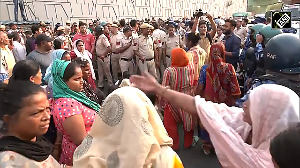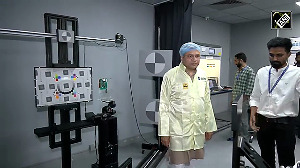The process of Assembly elections in Kerala got underway Tuesday with the filing of nominations beginning for 59 segments going to polls in the first phase on April 22.
The first phase covers six southern districts of Thiruvananthapuram, Kollam, Pathanamthita, Alappuzha, Kottayam and Idukki.
The last date of filing nominations is April 4, scrutiny will be on April 5 and the last date for withdrawal is April 7, according to the office of Chief Electoral Officer in Thiruvananthapuram.
The second phase of polling scheduled for April 29 will cover 66 segments spread over Ernakulam, Thrissur, Palakkad, Malappuram, Kozhikode and Wayanad districts.
Kannur and Kasargode districts with 15 segments will go to polls on May 3 in the third and last phase.
The counting will take place on May 11. This is for the first time that state is having three-phase elections.
Meanwhile, after overcoming initial hiccups, political parties in Kerala are now in full battle gear for the April-May Assembly polls.
With veteran leader K Karunakaran returning to the Congress-led United Democratic Front and Communist Party of India-Marxist politburo reversing its decision not to field veteran leader V S Achuthanandan, a neck-and-neck fight is in the offing.
Sandwiched between the two gigantic forces in Kerala politics -- the United Democratic Front and the CPI-M-led Left Democratic Front -- is the BJP which is hoping to open its account for the first time in the 140-member House.
The seat sharing in the United Democratic Front became almost a smooth affair, a marked deviation from the usual practice of suspense, melodrama and verbal duel.
This time, it was the LDF that faced some difficulties in finalising the list. Till a couple of months ago, the LDF was projected to win the Assembly polls with a comfortable margin considering its impressive show in the Assembly and Parliament byelections and local bodies poll.
A controversy over the SNC Lavalin deal signed during the tenure of CPI-M state secretary Pinarayi Vijayan as electricity minister, infighting within the CPI-M and the politburo decision to close its door on the Democratic Indira Congress (K) of Karunakaran changed the equations overnight.
Karunakaran, who deserted the Congress to form DIC(K) in May 2005, found himself left high and dry with the LDF deciding against any seat sharing with him in the coming elections.
He lost no time in warning the LDF was not going to win the elections after ditching his party.
Capitalising on the atmosphere, the Indian Union Muslim League, the second largest constituent in the ruling combine, took the initiative to bring the Congress and DIC(K) to sit across the negotiation table.
After marathon discussions that lasted for several days, a deal was struck between the two parties.
As per the understanding, Karunakaran's party would be given 18 seats and in return, DIC(K) was to merge with the parent party after the elections.
Though a major section in the Congress was against any tie-up with the DIC(K), everyone wanted to make full use of the political advantage if it came back to the UDF fold.
With UNI inputs







 © 2025
© 2025